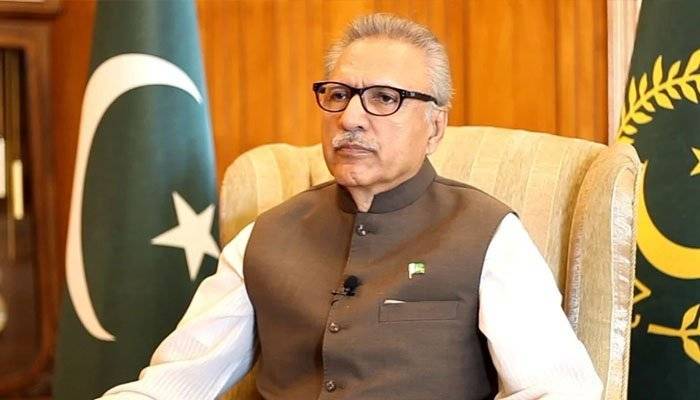President Alvi promulgates PECA, election amendments ordinances

Stay tuned with 24 News HD Android App

Following approval from the federal cabinet, President Arif Alvi Sunday signed two ordinances to make changes in the Prevention of Electronic Crimes Act, (PECA) 2016 and the Elections Act, 2017.
The changes in the electronic crimes act have been made under the Prevention of Electronic Crimes (Amendment) Ordinance, 2022 according to which anyone who is found guilty of attacking the identity of a ‘person’—whose definition has been broadened to include any company, association, institution, organisation, authority, or any other body—will now be sentenced to five years instead of three years in prison.
The ordinance states that the complainant shall be an “aggrieved person, his authorised representative, or his guardian, where such person is a minor or a member of the public in respect of a public figure or a holder of public office”.
According to the ordinance, a high court will supervise the cases filed under PECA and the trial court will have to conclude the cases within six months. “The court shall submit a monthly progress report of any pending trial to the concerned high court and shall give reasons for the inability of the court to expeditiously conclude the trial,” says the ordinance.
Copies of the progress report will be sent to the high court and the law secretary if the case is registered in the Islamabad Capital Territory.
Copies of the report will be submitted to the “provincial secretaries of prosecution departments, the prosecutor general or advocate general” if a case is registered in a province.
The high courts have been authorised by the ordinance to issue “fresh timelines” of a case if they find the “reasons” given by the trial court “plausible” and beyond their control.
The high courts have also been empowered by the ordinance to summon federal or provincial government officers to remove any “difficulties, hindrances and obstacles” in the case.
The law secretaries may inform the high court if they find a delay in the case due to the “presiding officer or any of its functionaries”.
The high court can also initiate or “direct commencement of appropriate disciplinary proceedings” if it finds that delay in the disposal of a trial is attributable to the presiding officer of the court or any other court functionary.
The chief justice of every high court has also been empowered by the ordinance to nominate a judge along with other officers.
Changes in election laws
The other ordinance promulgated with the president’s signature makes changes in section 181 of the Election Act, 2017. The amendments have added a new section titled 181 (A) in the law which now allows a member of “parliament, provincial assembly or elected member of local government, including member holding any other office under the constitution or any other law, will be allowed to visit or address public meetings in any area or constituency”.
